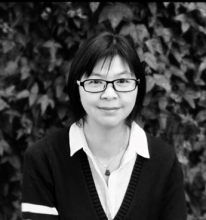MSE 298 Seminar: Catalyst Design For Clean Energy Technologies

Professor and Chair
Department of Materials Science and Engineering
UCLA
Abstract: Hydrogen as a clean and versatile energy carrier has the potential to decarbonize various sectors, including transportation, industry and energy generation. It plays a crucial role in reducing greenhouse gas emissions and advancing the transition toward a more sustainable and environmentally friendly energy future. Electrocatalysis plays a central role in hydrogen energy technologies. Despite significant progress, many electrocatalytic systems, such as hydrogen fuel cells, continue to face challenges related to insufficient catalytic efficiency, poor stability and the high cost of precious metal catalysts. Rapidly advancing beyond trial-and-error methods is imperative to address the imminent energy and climate crisis. This presentation will delve into the development of experimentally attainable descriptors capable of predicting the catalytic activity and stability of catalysts, which facilitates the accelerated discovery of more efficient catalysts. Furthermore, we will explore practical catalyst structure design, tailored to enhance both catalyst activity and stability in full-cell operation, thereby maintaining the overall performance of the device.
Bio: Yu Huang is the Traugott and Dorothea Frederking Endowed Chair in Engineering and the Department Chair of the Department of Materials Science and Engineering at UCLA. She received her B.S. in chemistry from University of Science and Technology of China (USTC), and her Ph.D. in physical chemistry and M.A in chemistry from Harvard University. Before Huang embarked on her independent career at UCLA, she was awarded the prestigious Lawrence Fellowship and held a joint postdoctoral position with Lawrence Livermore National Lab (LLNL) and Massachusetts Institute of Technology (MIT). Her research focuses on mechanistic understanding of nanoscale phenomena and on exploiting the unique properties of nanoscale materials for various applications.
Huang’s achievements have gained her international and national recognitions including the Materials Research Society (MRS) Fellow, the Fellow of Royal Society of Chemistry (FRSC), Highly Cited Researcher by Web of Science, Eni Award in Energy Transition, International Society of Electrochemistry (ISE) Prize for Experimental Electrochemistry, the International Precious Metal Institute (IPMI) Carol Tyler Award, Kavli Fellow, Sloan Fellow, the Presidential Early Career Award in Science and Engineering (PECASE), the National Institute of Health (NIH) Director’s New Innovator Award, the Defense Advanced Research Projects Agency (DARPA) Young Faculty Award, the World’s Top 100 Young Innovators award, the International Union of Pure and Applied Chemistry (IUPAC) Young Chemist Award and the Nano 50 Award etc.
Share
Related Content
| Attachment | Size |
|---|---|
| 2.35 MB |
Upcoming Events
-
MSE 298 Seminar: Molecular Modeling in the Age of AI - From Energy Materials to Device Simulations
-
CBE 298 Seminar: Metal Electrodeposition for Modern Mineral Refining
-
MSE 298 Seminar: Quasi-1D/2D Charge-Density-Wave Materials - From Exotic Physics to Application Prospects
-
EECS Seminar: Steering Diffusion Models for Generative AI, From Multimodal Priors to Test-Time Scaling
-
CBE 298 Seminar: Finding Catalysts of Gut Reactions - The Gut Microbiota in Disease Onset and Treatment
